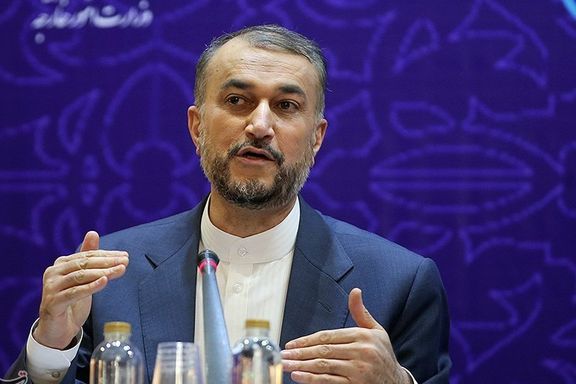Iran Says US Restoring Nuclear Waivers ‘Not Enough’, Asks Guarantees

Iran’s foreign minister has said that the US reviving waivers for foreign firms acting in parts of Iran’s nuclear program “is not enough,” and it needs real guarantees.

Iran’s foreign minister has said that the US reviving waivers for foreign firms acting in parts of Iran’s nuclear program “is not enough,” and it needs real guarantees.
Hossein Amir-Abdollahian noted Saturday that for talks to succeed in Vienna on restoring the 2015 Iran nuclear deal, the JCPOA (Joint Comprehensive Plan of Action), Washington still needed to guarantee it would abide by any agreement.
"In our view, goodwill in practice means that something tangible will happen on the ground. The lifting of some sanctions can, in the true sense of the word, translate into the goodwill that the Americans are talking about. What happens on paper is good, but not enough,” the Iranian foreign minister said.
The United States administration Friday defended its decision to lift the threat of sanctions against foreign companies working on aspects of Iran’s nuclear program. This followed a barrage of criticism from opponents of the Biden administration’s efforts to restore the JCPOA, who portrayed the move as a concession to Iran.
The waivers, which the US restored Friday, were withdrawn by President Donald Trump in 2019 and 2020. They had been in place for one or two years after Trump in 2018 withdrew the US from the JCPOA.
The waivers allowed continuing work to constrain Iran’s nuclear program as agreed under the JCPOA. The Chinese undertook modifications on the Arak reactor designed to preclude a route to a plutonium-based bomb, while Russian was involved in removing of supplying uranium fuel, including for the Bushehr power plant and the Tehran Research Reactor.
In a notice to Congress announcing the restoration of the waivers, the State Department explained that the move was “designed to serve US non-proliferation and nuclear safety interests and constrain Iran’s nuclear activities.”
The State Department said the move could help “facilitate discussions that would help to close a deal on a mutual return to full implementation of the JCPOA and lay the groundwork for Iran’s return to performance of its JCPOA commitments.”
Any agreement reached in Vienna would require a plan for Iran to reduce current stockpiles of enriched uranium, which might well be shipped out by Russia as was done after the JCPOA was agreed in 2015.
A state department official, speaking anonymously, told Reuters the waivers were needed for what the agency cited as “technical discussions central to the talks.”
Implementation Discussions
Similarly, Eurasia Group analyst Henry Rome told Reuters they waivers were “less a goodwill gesture or a concession to Iran, but rather technical steps that are probably aimed at ensuring implementation discussions can go forward in Vienna.”
Both State Department spokesman Ned Price and the State Department statement stressed that restoring waivers did not imply agreement had been reached in Vienna, nor that the US would lift ‘maximum pressure’ sanctions before Iran again accepted JCPOA limits.
The statement stressed that the waivers should not be seen as “a commitment or as part of a quid pro quo.”
Price tweeted Friday that the US would not provide sanctions relief to Tehran before it returns to its commitments under 2015 nuclear deal. "We did precisely what the last Administration did: Permit our international partners to address growing nuclear non-proliferation and safety risks in Iran," Price wrote.
Talks in Vienna between Iran and world powers to restore the JCPOA – with the US taking part indirectly - are expected to resume soon. The eighth round of talks broke last week as negotiators returned to their capitals for consultations.